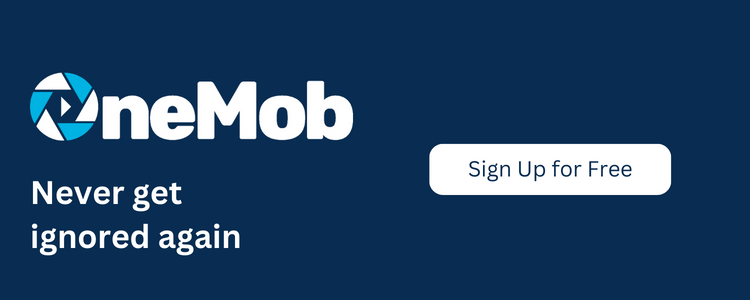Defining Business Terms: Proposal and Quote
In the realm of sales and business, the importance of clear and unambiguous communication cannot be overstated. Two terms that often spark ambiguity but play a pivotal role in the dynamics of trade are ‘Proposal’ and ‘Quote’. Although they are used interchangeably, they carry different connotations and are utilized differently in business conversations.
Proposal: Definition, Significance, and Use Cases
A proposal is a comprehensive document that outlines your solution to a client’s problem. It covers an extensive plan including approach, methodology, delivery timelines, resources involved and expected outcomes. A well-structured proposal also clarifies all the costs involved, making it easier for the client to understand and compare with other vendors.
In the realm of software-as-a-service (SaaS), a proposal could outline the solution architecture, implementation strategy, features, onboarding process, technical support and a tentative pricing structure based on projected usage or user tiers.
Tools such as OneMob are perfect for creating personalised microsites rich with information and context that can host these proposals, adding an element of flexibility, creativity, and personal touch in how you communicate with your prospects.
Quote: Definition, Significance, and Use Cases
A quote, on the other hand, is a more definitive document that provides the client with an exact figure of how much the product or service will cost. It is a legally binding agreement where the seller agrees to provide the services or goods at the quoted price.
Consider the case of a hardware vendor who provides a quote to a tech company for supplying 500 workstations. The quote will lay out the cost per workstation, additional expenses, taxes, and total cost – all of which are non-negotiable numbers.
When quotes are delivered using a platform like OneMob, you can ensure consistent branding and messaging across all your sales assets while having real-time insights into whether your quotes are viewed or interacted with. This further improves outreach and conversion and ensures better qualification of leads.
Proposal versus Quote: Understanding the Differences
After having defined what a proposal and quote are in the business parlance, it is crucial to understand their distinctions and relevance in various business contexts. The subtleties that differentiate these two documents can be profound and influential in the sales and agreement processes. As you
continue to engage your prospects with OneMob, unraveling these definitions might increase your efficiency and outreach.
Deciphering the Purpose of Each Document
At a high level, a proposal is often a detailed document outlining the scope of a project, service, or product, along with its associated cost and timeframe. It is typically used when the specifics of the task are complex. A quote, conversely, is a precise statement signifying the fixed cost for a particular service or product. It is generally used when the details of the job are straightforward, and the price does not fluctuate.
Contextual Differences between Proposal and Quote
When it comes to their applicability, understanding their contextual variations becomes essential. If you’re proposing a unique solution that demands comprehensive explanation, a proposal is fitting. If, on the other hand, you’re offering a standard product or service with set prices, a quote is more appropriate. Do bear in mind that OneMob can aid you through both of these contexts by facilitating tailored microsites for your prospects.
Key Elements that Distinguish a Proposal from a Quote
A quality proposal usually incorporates sections like an introduction, objectives, methodology, schedule, investment, and terms and conditions. This detailed document incorporates an element of persuasiveness intended to convince prospective clients that your solution is the best. Meanwhile, a quote always includes details such as quantity, description, unit price, total price, payment terms, and validity period. Unlike a proposal, a quote is more of a factual document and less of a persuasive one.
| Proposal | Quote |
|---|---|
| Detailed document | Fixed cost statement |
| Useful for complex tasks | Applicable for straightforward jobs |
| Includes persuasive elements | Fact-based document |
Common Misconceptions and Potential Points of Confusion
Because a proposal and quote often serve similar purposes, it’s easy to confuse the two. One common misconception is that they are interchangeable with no significant differences. Some may even go a step further and use both to mean the same thing. Such misinterpretations can lead to improper customer communication, thereby reducing the effectiveness of your outreach. Leveraging OneMob to communicate clearly and consistently can help mitigate these mistakes, providing clear, detailed information to your prospects without ambiguity.
Harnessing the Power of Proposals and Quotes in Business Communication
The choice between a proposal and a quote in business communication largely hinges on the context and intended purpose. Both have their unique applications and advantages. Knowing when to issue a proposal instead of a quote, or vice versa can significantly enhance the effectiveness of your outreach and conversion strategies.
Identifying When to Use a Proposal Versus a Quote
A proposal is typically used in scenarios where the potential project or service is complex, demands customization, and requires detailed planning to meet the client’s needs effectively. A quote, on the other hand, is used when the services or products offered are somewhat standardized, and the focus is on the cost and delivery time. A tool like OneMob comes particularly handy in making this decision, as it provides insights into customer engagement, helping you understand your client’s needs better.
Strategies for Crafting Effective Proposals and Quotes
Strategizing your proposals and quotes is crucial to winning over potential clients. An effective proposal elucidates your understanding of the client’s needs, outlines your proposed solution, and presents a compelling case for your services. Highlighting your unique value proposition, including any specialized expertise, and customizing the proposal to your client’s specific requirements, can all contribute to a winning pitch. OneMob can be instrumental in crafting engaging microsites to communicate your proposals effectively.
A quote, on the other hand, should be clear and concise, mentioning all costs upfront to avoid any misunderstandings later. It should be personalized to reflect an understanding of the client’s needs. By integrating OneMob into your quote-creation process, you can switch to creating personalized video quotes to communicate the estimate more transparently.
Case Studies Highlighting the Strategic Use of Proposals and Quotes
Many successful engagements between businesses and their clients can be attributed to the strategic use of proposals and quotes. For instance, a web development company vying for a customized project would stand a better chance of securing the project with a proposal rather than a quote. This is because a proposal would allow the company to detail their approach, showcase their competencies, and align their services with the client’s needs. On the other hand, a hardware supplier making a standardized product offering would benefit from issuing a quote, as the clear pricing and delivery terms can set the supplier apart in a competitive market. These are but two examples – the strategy can be adapted to various unique situations, depending on the business and client needs.
FAQ
Q: When should I use a proposal?
A: Use a proposal when the project or service requires detailed planning and customization to meet the client’s needs.
Q: When is a quote more appropriate?
A: A quote is more appropriate when the services or products are standardized, and the emphasis is on cost and delivery time.
Q: How can OneMob help improve my proposals and quotes?
A: OneMob allows you to build personalized and engaging microsites, also providing insights into customer engagement that can help tailor your proposals and quotes effectively.





